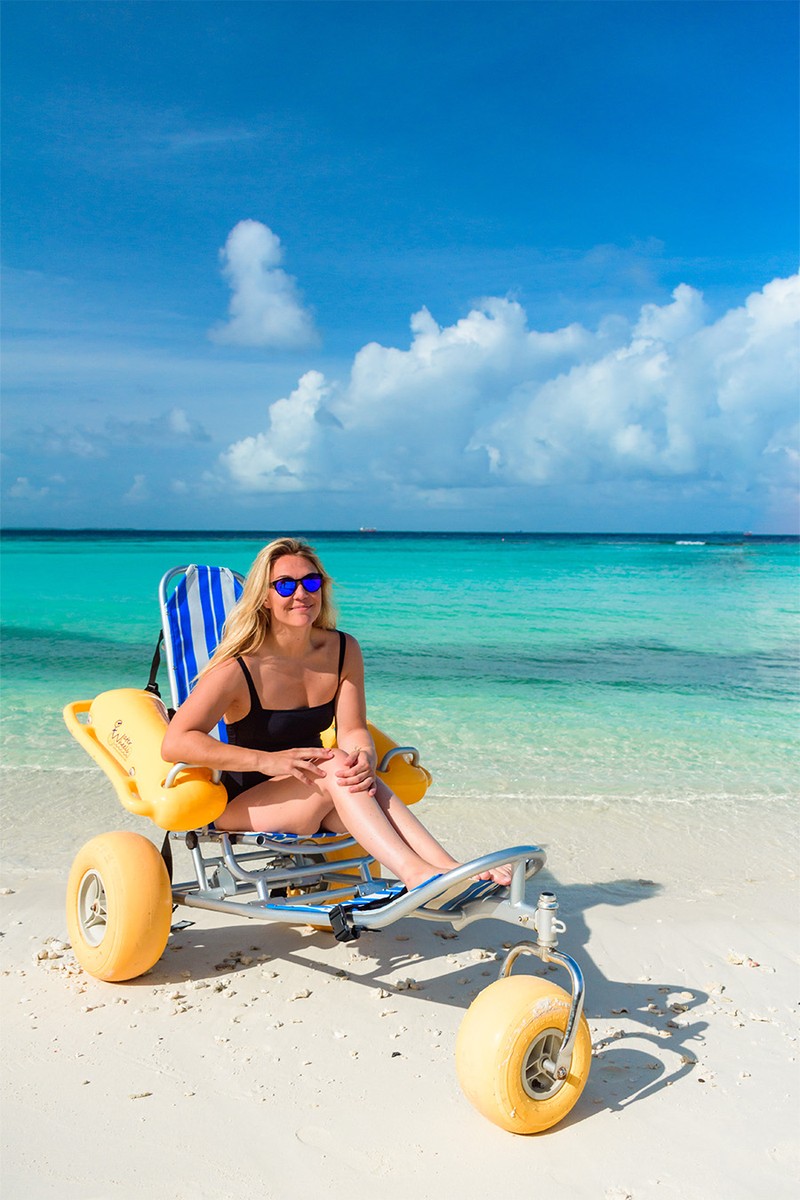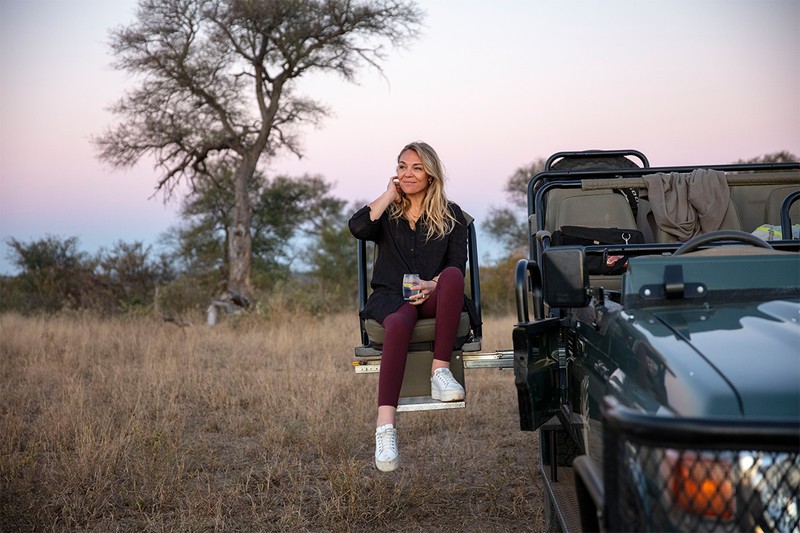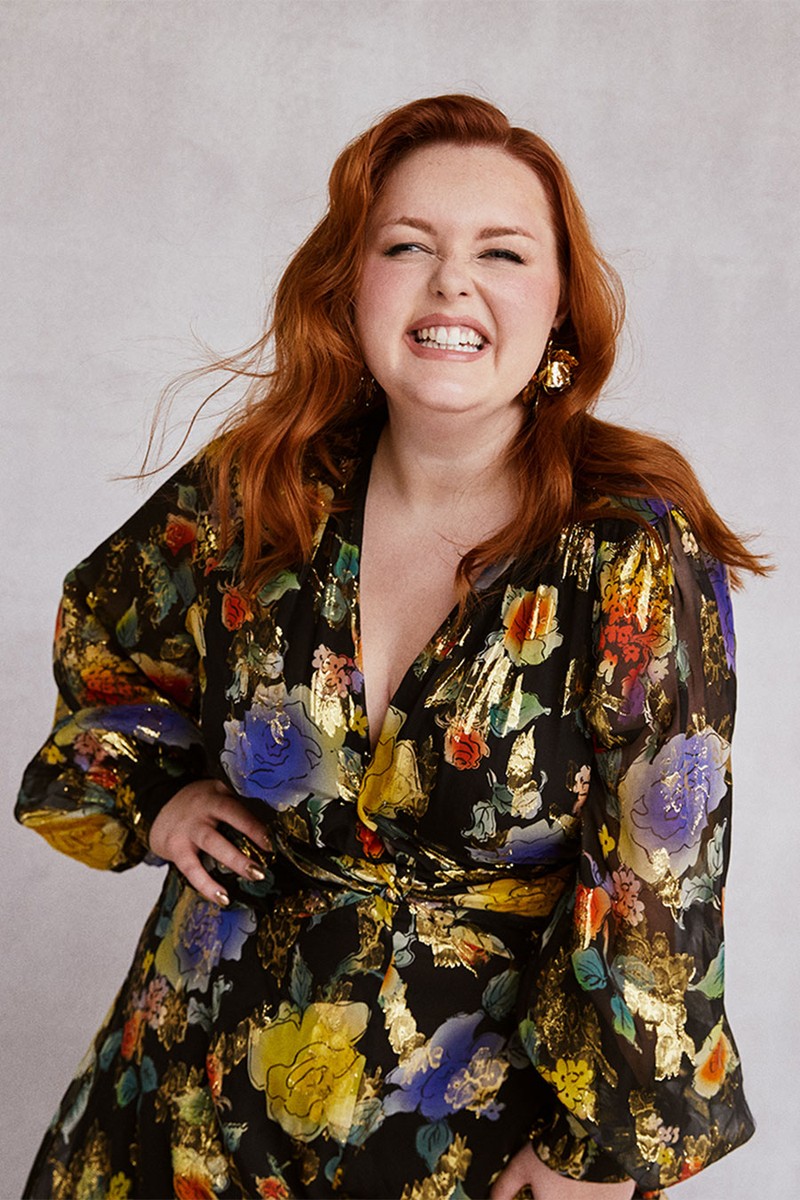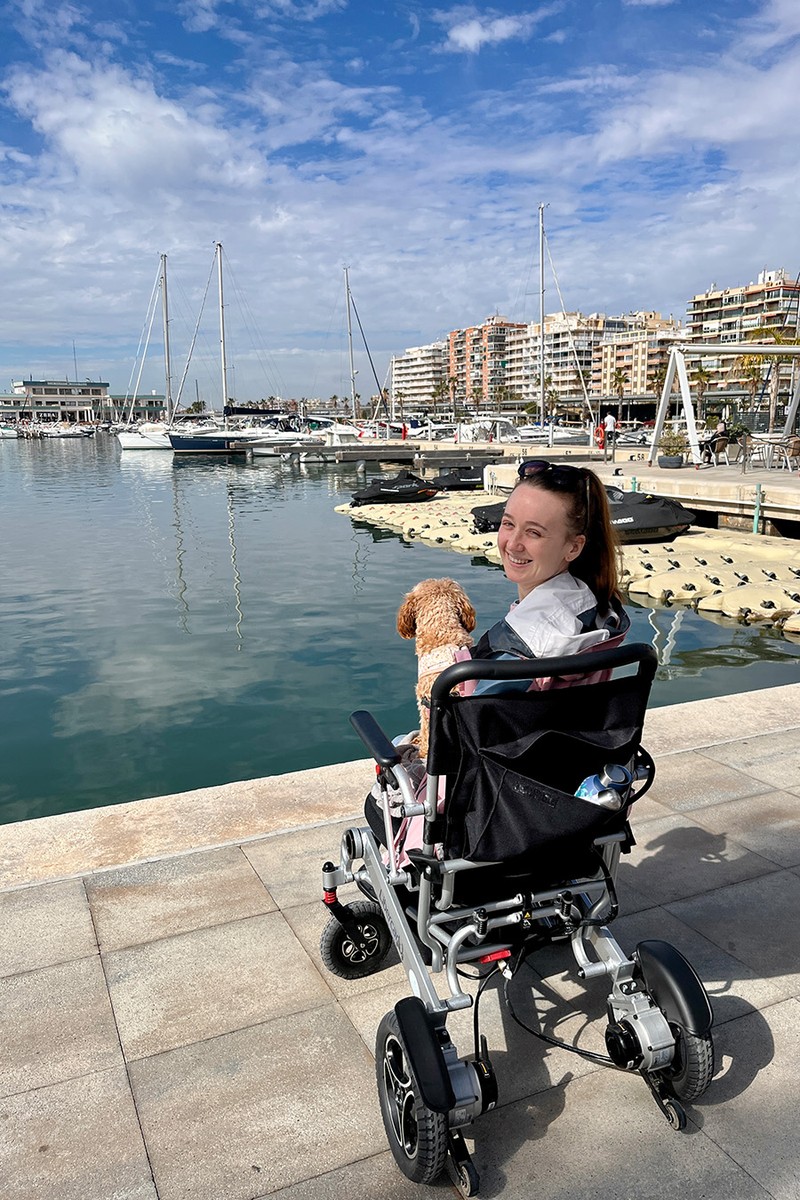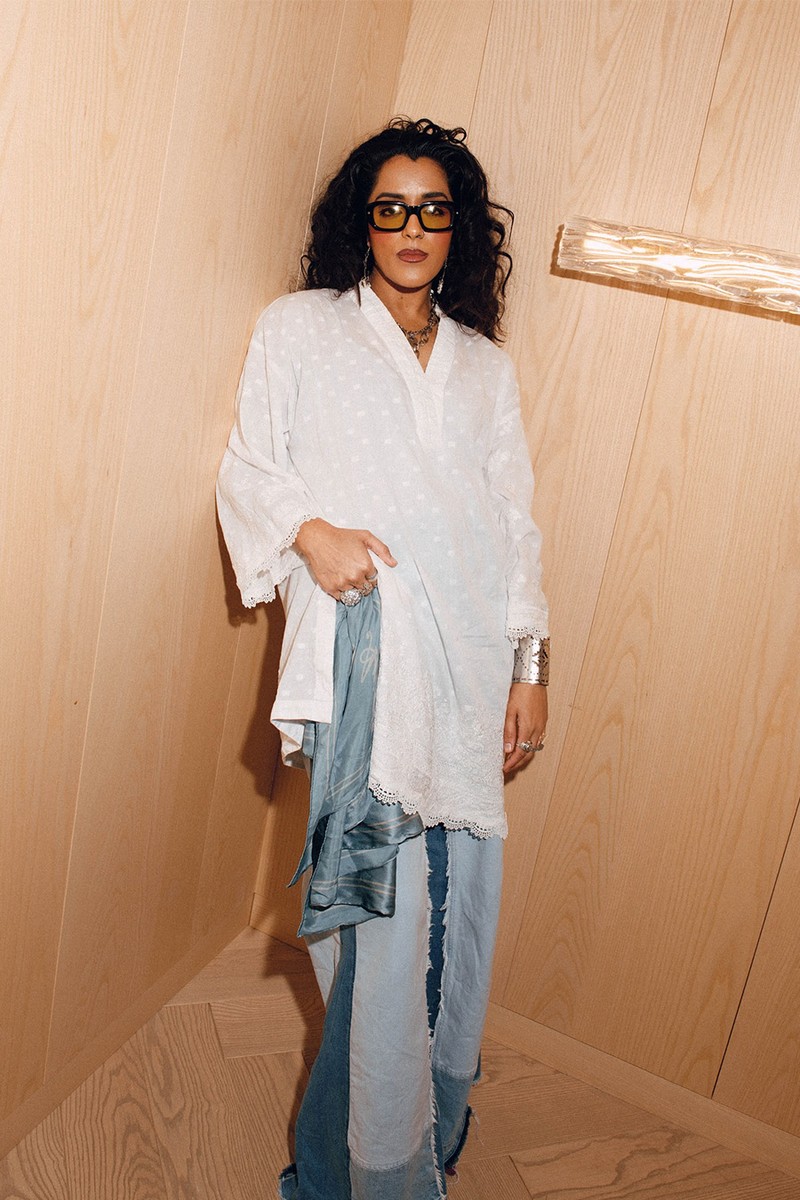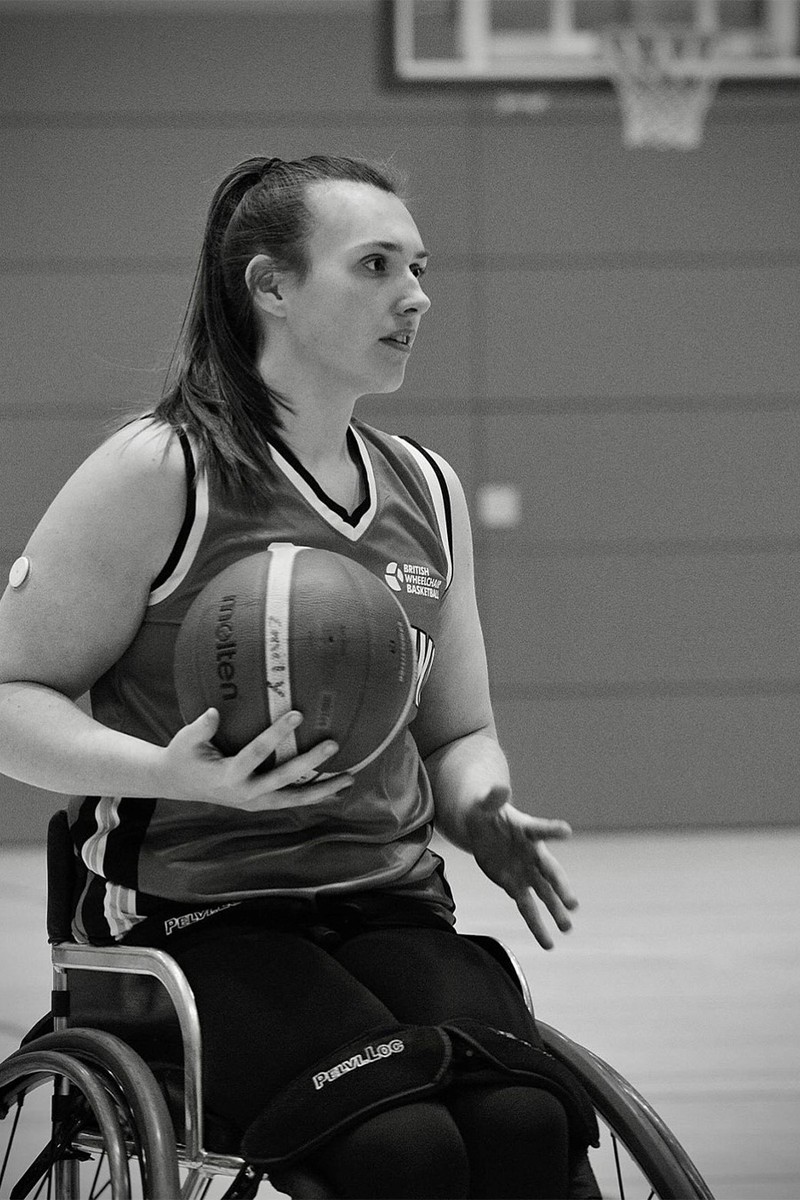
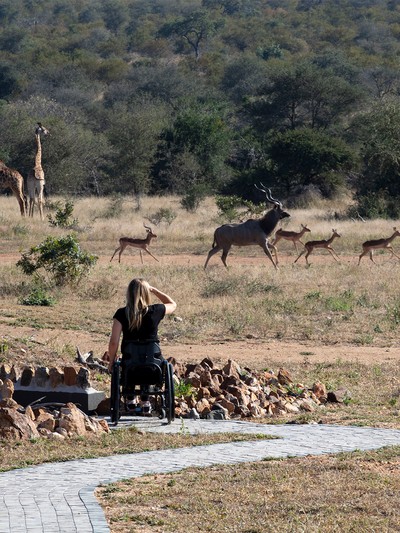
5 Women Share Their Experiences Travelling With A Disability
Sophie Morgan
Sophie Morgan is a British TV presenter, disability advocate and author. Paralysed in a car accident at 18, she has since become a prominent voice for inclusion and accessibility. Known for fronting major broadcasts like the Paralympics, she also campaigns for disabled rights through her global activism.
The best place I’ve travelled to is Ximuwu Safari Lodge in South Africa. It’s one of the world’s first wheelchair-accessible luxury safari lodges, and honestly, it blew my mind. It’s not just accessible in a box-ticking way; it’s been designed from the ground up with disabled guests in mind. From adapted safari vehicles to roll-in showers and even a pool hoist, every detail made me feel completely included. But what really made it special was the freedom I felt – being able to explore the African bush, see the Big Five and have zero worries about access… It was magical.
Amilla Maldives is also right up there. It’s one of the most genuinely accessible luxury resorts I’ve stayed at – and the first in the world to be verified by IncluCare (think the Michelin Guide, but for accessibility). They’ve thought of everything, from beach wheelchairs to properly designed rooms, and its staff are absolute stars.
As a traveller with a disability, never take ‘accessible’ at face value – you need to ask loads of questions, because accessibility is relative. We all have different requirements. What does the bathroom look like, for example? Are there steps anywhere on the property? Can they send photos? It feels like a lot, but it saves a lot of headaches later. I’d also advise others to give themselves extra time for everything and always travel with a toolkit of essentials – think spare parts for your wheelchair and key medications in your hand luggage. And know your rights – it makes a massive difference if things go wrong.
Flying is the biggest hurdle for me. Every time I hand my wheelchair over at check-in, there’s that fear it’ll get damaged – or worse, lost. You’re so vulnerable, and that never really goes away. Poor compensation and reparations when things do go wrong mean the risk often outweighs the reward. Beyond that, challenges like old cities with poorly enforced access laws, inaccessible transport, or discriminatory attitudes can really throw a spanner in the works. But even with the challenges, the joy of travel – and proving to myself and others that it can be done – keeps me coming back for more.
Follow @SOPHLMORG
/https%3A%2F%2Fsw18.sheerluxe.com%2Fsites%2Fsheerluxe%2Ffiles%2Farticles%2F2025%2F05%2Fsl-150525-travel-interview-global-accessibility-awareness-day-clay-banks-hwlai5lrhdm-unsplash.jpg?itok=mKrinlyl)
Lucy Edwards
Lucy Edwards is a British broadcaster, journalist and disability activist. Blind since age 17 due to a rare genetic condition, she creates content around accessibility and inclusion. A former BBC Radio 1 presenter, she uses her platform to raise awareness and challenge perceptions of blindness.
The most accessible-friendly place I’ve been to is Tokyo, Japan. I was there filming a documentary for the BBC and it was an amazing experience. I know it sounds strange because of the language barrier, but it was the place where I felt most like myself. The infrastructure in Japan is incredibly supportive of blind people. There’s tactile paving everywhere, junction boxes to help you feel your way at crossings, even at Shibuya Crossing, the world’s busiest intersection.
I also loved the sensory elements: the billboards talk and the trains have tactile maps of the toilet layout. I didn’t have to worry about fumbling around or feeling lost. Everything was so clean and so thoughtfully designed. Even in the train stations, there were tactile maps and Braille information to help you navigate. I had meetings with representatives from the Japanese government and tourist board, and they told me about their plans to roll out more signage and technologies like NaviLens – a code system that helps visually impaired people navigate spaces using sound. It was so inspiring.
When I book a hotel, I often ask not to be given an ‘accessible room’. That’s because the layout in those rooms can sometimes be too spaced out, which makes it harder for me to orient myself. Instead, I usually stick to chain hotels like Premier Inns or Hiltons because I know the room layout is always the same. It sounds boring, but it helps me conserve energy for exploring outside rather than figuring out a new hotel room.
That said, I’ve stayed in some beautiful five-star hotels in London and around the world, and what stands out in those is the service. If I need guiding to my room, someone is always happy to help. It does come with a higher price tag – what I call a bit of a ‘disabled tax’ – but the peace of mind is worth it when I’m travelling alone. I do recognise that I’m very privileged to have access to those kinds of hotels.
My advice for others with visual impairments is to always plan ahead. Unfortunately, even with the best planning, things can still go wrong but preparation helps. For example, if you’re travelling with a guide dog, like I do with my dog Miss Molly, make sure you have an animal health certificate and check each airline’s policies in advance. Every airline has different rules for guide dogs, so it’s important to know what to expect. I also recommend giving yourself more time than you think you need. Even for short-haul trips, allow a whole day to travel and settle in. Things can take longer when people aren’t familiar with how to support disabled travellers, and that extra time can make all the difference.
Vietnam, China, Thailand and India are all places I’d love to visit. I know each will come with its own challenges but I’m drawn to destinations that are rich in history, culture and food, even when I don’t speak the language. I like to plan my trips around sensory experiences, like massages in Thailand or cycling tours, rather than just sitting on a sun lounger. I want to really absorb the culture and push myself a bit. That’s what makes travel so exciting for me.
Follow @LUCYEDWARDSOFFICIAL
/https%3A%2F%2Fsw18.sheerluxe.com%2Fsites%2Fsheerluxe%2Ffiles%2Farticles%2F2025%2F05%2Fsl-150525-travel-interview-global-accessibility-awareness-sl-150525-travel-interview-global.jpg?itok=MLB9nmq2)
Pippa Stacey
Pippa Stacey is a writer, speaker and disability advocate. Living with ME/CFS, she shares insights into chronic illness, accessibility and inclusive education. She’s the author of ‘University and Chronic Illness’ and founder of Spoonie Survival Kits, using her platforms to empower others with disabilities.
Barcelona is hands-down the best accessible holiday experience I’ve had. It was so easy to get around as a wheelchair user, and Nova Icaria Beach was unbelievable. There was a whole section on the sand reserved for disabled people, including accessible facilities and changing rooms, and even teams of volunteers to take you out into the sea on a beach wheelchair. When I first acquired my chronic illness, I never would have believed I’d find myself swimming in the sea with my friends again one day.
I’m yet to be truly wowed by any hotels, but I’m about to head off on a P&O cruise around the Norwegian Fjords. As somebody with multiple allergies, I’ve always been made to feel safe and well accommodated on cruises in the past. I’m hoping that cruising will provide an incredible on-board experience and an energy-friendly way to enjoy the amazing fjord views.
My advice for others is not to be afraid to book airport assistance, even if you have a non-visible disability. Travel days can be exhausting, so having support in place to reduce time standing and queuing can make all the difference. If you have food allergies, research safe and suitable places to eat ahead of your trip. If there’s a language barrier, print Chef Cards to take with you and show them to kitchen staff.
If you don’t want to travel with your own mobility aids, or your access needs will be different while away, look into renting mobility aids at your destination. I’ve had brilliant experiences doing this in Spain – flying with my manual wheelchair and renting an electric one on the other side. Just make sure to book in advance and check reviews carefully to ensure you’ve chosen a reliable provider.
As somebody with a chronic illness, rest and recovery is a big piece of the puzzle for me. Sometimes accessible rooms in hotels can be the least noise-insulated, which is a major barrier. They’re often placed next to elevators or in high foot-traffic areas, and while they’re set up for wheelchair users, the noise can worsen my symptoms and undo the benefits. I always try to choose destinations and accommodation that will allow me to rest peacefully when I need to, so I can enjoy the trip as much as possible.
Follow @LIFEOFPIPPA
Arooj Aftab
Arooj Aftab is a cultural consultant, creative and curator who’s redefining inclusion through her powerful #DoneWithDiversity campaign. Living with neurofibromatosis type 1 (NF1) – a genetic condition that causes benign nerve tumours to develop under the skin – Arooj channels her experience into advocacy. She uses her voice to spotlight underrepresented communities and champions meaningful representation not just on screen, but behind the scenes across the creative industries.
One of the best places I’ve visited is Istanbul. That trip felt incredibly meaningful – almost transformative. Visiting Topkapi Palace was especially powerful and gave me a moment of deep inner connection that’s stayed with me. In terms of accessibility, I found it very manageable. Taxis were easy to find, which meant I didn’t have to overexert myself walking.
I’ve consistently had positive experiences with Airbnbs. A recent trip to Seville stands out – staying in a centrally located flat with lift access made such a difference. It was easy to get around, and I always felt I could return to my accommodation without hassle or exhaustion, which really shaped the trip in a positive way.
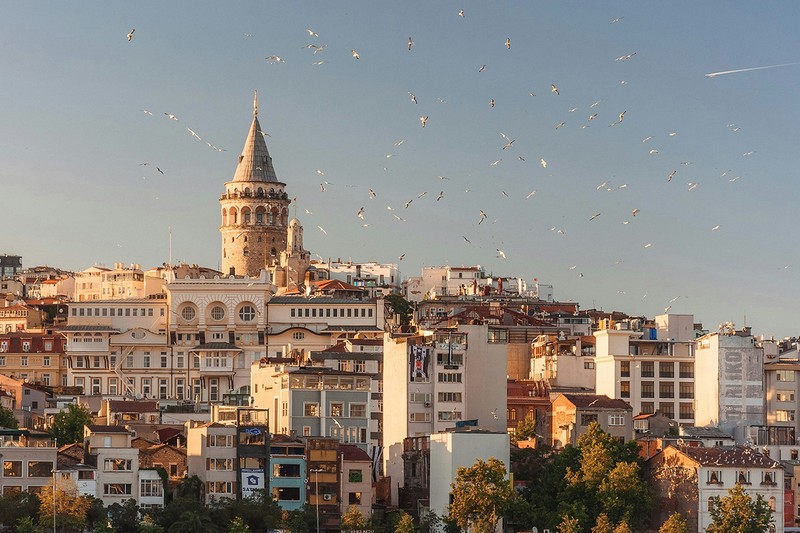
Everyone’s experience is different, and while I have a neurological condition, I don’t usually describe myself as disabled. That said, one thing I’ve learned is the importance of wearing comfortable shoes – you’ll thank yourself later. When flying, I always check the airline’s seat and legroom options. Even if nothing ideal is available when booking, I’ve found that speaking to cabin crew directly often helps – they’ve usually been very accommodating once on board.
One of the hardest things I’ve experienced is dealing with invisible conditions. I don’t use a disability badge or mobility aids, so it can be frustrating when I need adjustments and feel like I have to explain myself. Whether it’s asking for a more comfortable seat, a bit of extra legroom, or simply somewhere to sit for a few minutes, the judgement from others can be disheartening. It’s especially tricky in cafés or restaurants where you're expected to buy something just to sit – sometimes you just need a moment, without having to justify it.
Follow @ITS.AROOJ
/https%3A%2F%2Fsw18.sheerluxe.com%2Fsites%2Fsheerluxe%2Ffiles%2Farticles%2F2025%2F05%2Fsl-150525-travel-interview-global-accessibility-awareness-day-boudewijn-boer-weipxgqjxuy-unsplash.jpg?itok=b2fudImc)
Alice McHaffie
Alice McHaffie is a rising talent in British wheelchair basketball, currently playing for the Tees Valley Mohawks basketball club in the North of England and part of the GB U25s squad. Diagnosed with a disability aged ten, she found purpose through sport and now also supports spinal cord injury research through Sunrise Medical and RGK Wheelchairs initiatives.
I found travelling to Amsterdam and Paris super easy and stress-free on the Eurostar. I’ve taken the train a few times now and I’ve always had an enjoyable experience. You do have to book ahead of time for an access seat or space on the train, and when you arrive, you go through security in a separate queue. You then have the option to go to a lounge, or you can wander around the station until the train is ready.
Ramps are put out so I can enter and exit the train, and there’s also a wheelchair-accessible toilet on board. I’ve found the staff to be really lovely and efficient. There are plugs near the seat, which is handy for charging my wheelchair add-on – my F35 electric wheel – so it’s ready for the day ahead. In Amsterdam, I found the accessibility really accommodating, with wheelchair-accessible trams. The trains also had ramps that came out with the press of a button, which meant I didn’t have to pre-book, allowing me to travel around with more freedom – it was lovely not to be tied down to a plan.
As a wheelchair basketball player, I stay in a lot of hotels when travelling to games, and I’ve found the best ones to be Premier Inns. There are usually emergency pull cords and buttons around, as well as wet rooms, which are really helpful for disabled people. The hotel always asks about evacuation plans in case of a fire, and they have procedures in place to help people exit if they need assistance.
When travelling by plane, most wheelchairs are put in the hold. In some cases, a chair can be stored in a dedicated storage area in the cabin, but you do have to ask if there’s space. If the flight’s not full, you can sometimes request that the chair frame is placed on a spare seat. Not all flight operators allow this, but if your chair is collapsible, it might be stored in the overhead compartment. Having the wheelchair on board and not in the hold really helps reduce the risk of damage – and offers peace of mind that it’ll arrive in one piece.
Throughout my travels, I’ve faced various challenges – especially when it comes to the care of my wheelchair. This is more of an emotional one, because it’s hard for someone else to understand that if my wheelchair or other equipment is damaged, I won’t be able to do anything when I land. Wheelchairs are made to measure to meet individual needs – and if one breaks, it can leave a person stranded, taking away their freedom. I’ve also experienced flight delays, and in those situations, access arrangements haven’t always been properly communicated, which adds to the stress. For instance, ambi-lifts (used for boarding planes) must be pre-booked – without them, I can’t get on the plane.
Overall, travelling can be an emotional time filled with anxiety – whether I’ll be able to board, whether my wheelchair will be loaded, or whether it’ll arrive broken. Despite these concerns, I try not to let them stop me from exploring. I remain hopeful that staff in the travel industry are receiving better training around disability awareness, and that people will become more understanding of the worries disabled travellers face.
Follow @MCHAFFIE_ALICE
DISCLAIMER: We endeavour to always credit the correct original source of every image we use. If you think a credit may be incorrect, please contact us at info@sheerluxe.com.
